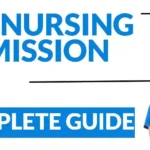It is an exciting journey to learn English. It is a source of internal satisfaction that you have acquired a skill that you did not have and others are not capable of learning the language. If you notice minutely, you will discover that more than 90% of little ones or grown-up people fear English learning. However, written and spoken English is highly essential today in the modern world. The business world, corporate world, foreign trips, higher education, and almost all other areas require English as their main communication language. There are a lot of places where English is required.
Therefore, you must comprehend English after listening to others’ speeches and responding to written or verbal communication. You must learn advanced vocabulary, sentence construction, idiomatic expressions, and so on when you want to grow. When everything in you is combined in just one place, you will develop your overall fluency. Whether you are a beginner or an advanced learner, some novels can cater to your current level and push your skills to the next stage.
Why should you read novels to learn English?
Some people may consider that they do not have a knack for reading books. So, they want to learn only some grammar and vocabulary to speak, read, and write English. They consider these three things essential for everybody to learn English.
If you are a grown-up person, you can observe the childhood days when grammar books and literature books were in the syllabus. What is the requirement to have two books in the syllabus? The reason is that only grammar rules and sentence structure reading cannot give you a complete idea about the literature, English, or spoken utility. Besides, dictionaries cannot provide you with the perfect utility of words and their usage. That is why literature books are essential to include in the syllabus. Compare your situation in learning spoken English online. You will get some limited classes there with some limited conversational classes. There you will get a basic idea of spoken English and some practical spoken classes.
After mastering the fundamentals of spoken English, you must develop your skills independently. There might be cinema shows, TV, radio podcasts, and many other opportunities to learn English in this age of mobiles and integrated internet service. When you are getting so many audio-visual media for learning, why should you read novels?
You have the requirement for many reasons. Reading and learning is the best way to learn the English language. There you can see how sentence structure is formed and the words are chosen technically. You can learn and mark vocabulary, practical usage of words, and many more. I am not telling you that audio-visual media does not help learn English, but the value of reading novels is something different as it is a written format. You can stay as long as you can on a particular sentence, grabbing vocabulary and all that you cannot do while learning from audio-visual media.
Here are 10 best Novels to Enhance English Skills
You can learn English from the basic level to the advanced level and choose the novels likewise. Let’s learn which novels are essential for the basic level, intermediate level, and advanced level. Here are the short explanations for them.
For Beginner Learners (A1-A2)
- “Charlotte’s Web” by E.B. White
Why it is good for beginners: The novel is interesting but written in simple language with short sentences where you learn clear vocabulary, easy sentence construction, and no complicated meaning. It tells the story of a pig called Wilbur, and he has a friendship with a clever spider named Charlotte. While reading the novel, everybody will enjoy it. It is also helpful for people who want to learn English with a comfortable mindset.
Learning point: Here you will learn basic sentence structure, reading amusement, and the animal influence on the entire platform.
- “The House on Mango Street” by Sandra Cisneros
Why it is good for beginners: This novel is also written in simple and easy language where a series of literary descriptions are present. It is a short but self-contained story. Each story is short, where easy and simple languages are used. Here you can enjoy rich cultural, social, and emotional juxtaposition used in some figurative expressions, mainly metaphors. Here students can learn how metaphorical expressions are present; it is an extra addition to the other features.
Learning point: simple and commonly used terms of storytelling, poetic elements, metaphors, etc.
- “The Very Hungry Caterpillar” by Eric Carle
Why it is good for beginners: It is a type of children’s picture book with stories. However, it will give you some extra nostalgia for childhood life. Its repetitive structure and simple coinage of words have made it selective for beginners. It helps reinforce the primary English language skills. The book is also colorfully illustrated, which makes it amusing and attractive.
Learning point: Names of days of the week, colors, animal identity, and enhancement of simple but useful vocabulary.
For Elementary/Intermediate Learners (A2-B1)
- “Harry Potter and the Sorcerer’s Stone” by J.K. Rowling
Why it is good for elementary learners: The series of Harry Potter is well known across the world. It is written for the younger learners. The story circles the magical words of Hogwarts. It is easy to read, but the expressions, sentence constructions, and coinage of words are somehow a bit more standard than the primary-level learners. However, an advanced learner of primary or basic spoken English has a lot of spices to experience in this series of books. You can have a collection of series if you are an elementary learner.
What is to learn here: Common adjectives, verbs, and expressions; appropriate vocabulary related to school, fantasy, or friendship. The expressions of anger, joy, rogue, etc. are also the learning points of this series of books.
- “Matilda” by Roald Dahl
Why it is good for elementary learners: In the books of Dahl, the readers will always find the playful language where Matilda is not present. Arranged in a simple plot, excellent humorous behavior—making the story enjoyable, easy to learn, and observing the expressions used there.
Learning point: All parts of speeches, along with the adverbs, verbs, sentence construction rules, and playing of word usage in different sentences.
- “The Giver” by Lois Lowry
Why it is good for elementary learners: The Giver is a novel of human misery. Here the writer is a straightforward narrator to write the novel. It is a simple and directly uttered novel where the readers will get complex themes. The entire backdrop makes it an excellent choice for learners who want to learn English after completing their primary level. They cannot help but get overwhelmed.
The learning points: learn vocabulary, emotional expressions, social structures, and the way to express emotional tears.
For Intermediate Learners (B1-B2)
- “The Catcher in the Rye” by J.D. Salinger
Why it is great for intermediate learners: This novel is created encircling a teenager, Holden Caulfield, and it is written in the first person. Hence, the understanding process is very simple, and you can do it easily. It features conversational English with a lot of colloquialisms. So, readers can easily get accustomed to native English and can easily become familiar with the idiomatic expressions of everyday native English.
The learning point: phrasal verbs, idiomatic expressions, and American slang are used in this novel.
- “To Kill a Mockingbird” by Harper Lee
What an intermediate learner can learn: It is a great novel for intermediate learners. This novel is the novel of justification, race, morality, and the American South. The language is rich, but an intermediate learner can easily grab it to acquire information, new vocabulary, standard sentence construction, and all. The narrator discloses the descriptions of childhood, the innocence of tender ages, and the issues created in adulthood. Thus, the novel finishes with the cultural context of justification and morality. There are a lot of things to learn from here.
Learning points: A lot of terminology is used for social and logical terminologies, idiomatic expressions, literary expressions, and symbolism.
- “The Curious Incident of the Dog in the Night-Time” by Mark Haddon
Importance of the novel for intermediate learners: This book is written circling a 15-year-old boy having a disorder called autism. The story flows with a unique narrative style, and the language is straightforward. However, the story runs inside with complex themes. The context of the book is written in British English but completed with unconventional narratives.
What you learn: you will get a mature vocabulary where you will get family dynamics, emotions, social situations, and everything. Here, dialects of British expressions are uttered nicely.
For Advanced Learners (C1-C2)
- “1984” by George Orwell
Why should advanced learners read it? 1984 is a thought-provoking story of the utter sorrows and sufferings of human beings. The writer has created an imaginary state where he describes all in subtle and pungent terms. Here you will get complex sentences, mature-level vocabulary, excellent sentence structures, and all. The themes of the novel are totalitarianism, surveillance, and individuality, which keep the readers in both intellectually and linguistically mellowed situations. This way a learner can look to improve their ability to experience philosophical texts.
Learning point: Advanced vocabulary is the main target point where grammar, politics, government, and related matters are described. Apart from all these, you can learn the English language with complex sentences, their structure, and so on.
Tips for reading novels in English:
- Read aloud to improve the quality of pronunciation.
- Use a dictionary to learn the unknown meaning of words.
- Take notes to go through them after a certain period to learn by heart.
- Re-read the chapters so that you can grab the meaning of the context easily.
Conclusion
If you want to make yourself strong from basic level to advanced level spoken English, you can try novel reading theory. On the other hand, you can pursue a course from FastInfo Class®, the best online spoken English learning organization. The faculties are highly accredited in this field. So, what are you waiting for? Contact them today.









